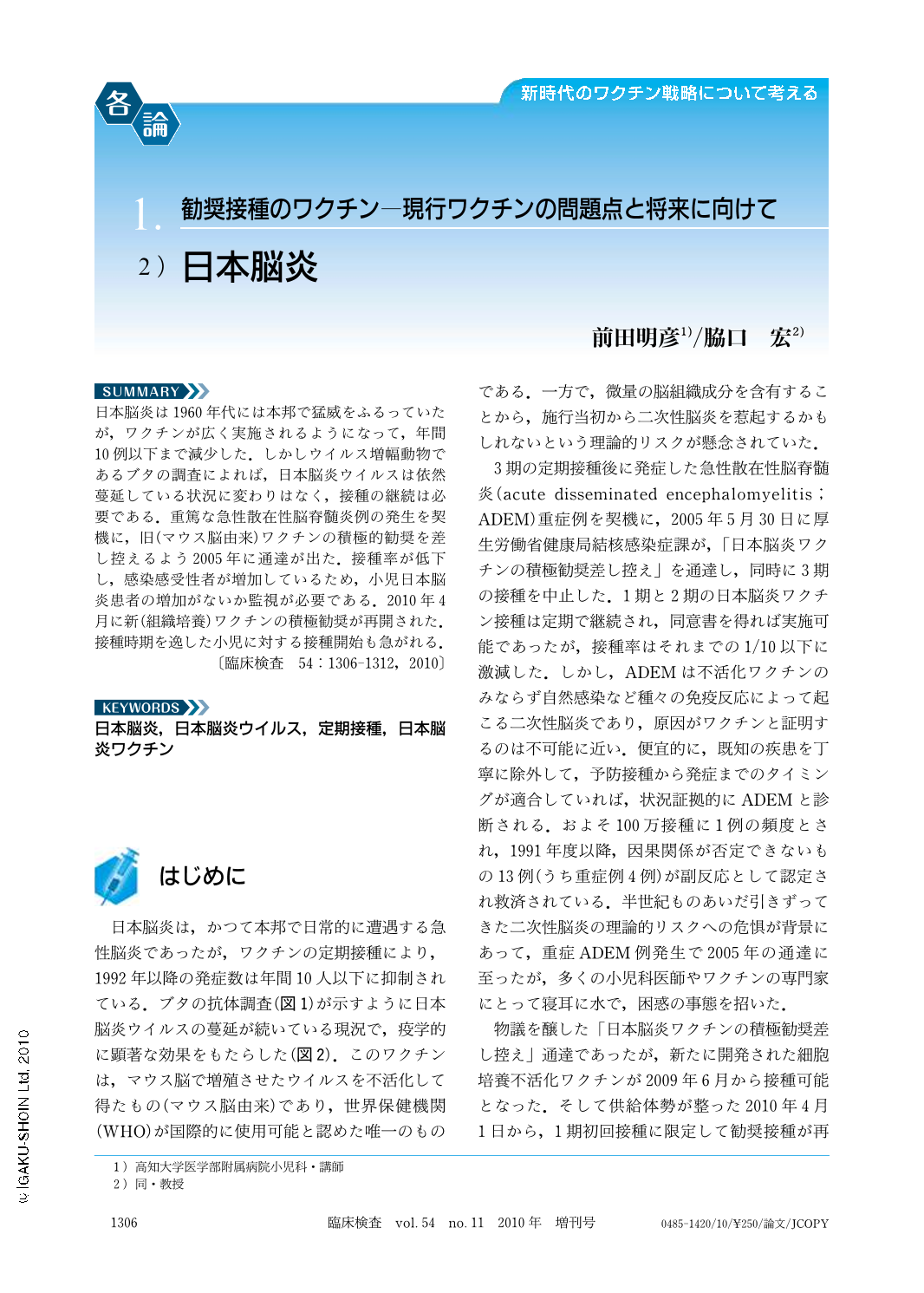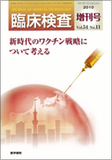Japanese
English
- 有料閲覧
- Abstract 文献概要
- 1ページ目 Look Inside
- 参考文献 Reference
日本脳炎は1960年代には本邦で猛威をふるっていたが,ワクチンが広く実施されるようになって,年間10例以下まで減少した.しかしウイルス増幅動物であるブタの調査によれば,日本脳炎ウイルスは依然蔓延している状況に変わりはなく,接種の継続は必要である.重篤な急性散在性脳脊髄炎例の発生を契機に,旧(マウス脳由来)ワクチンの積極的勧奨を差し控えるよう2005年に通達が出た.接種率が低下し,感染感受性者が増加しているため,小児日本脳炎患者の増加がないか監視が必要である.2010年4月に新(組織培養)ワクチンの積極勧奨が再開された.接種時期を逸した小児に対する接種開始も急がれる.
Japanese encephalitis (JE) was common in Japan in 1960's. Universal immunization has dramatically suppressed the number of JE cases to less than 10 per year. The regular national surveillance shows that the seropositivity of JE virus in pigs that are the reservoirs for the virus remains high in Japan, especially in southern area. Since JE virus is thus prevalent in Japan, the universal immunization against JE virus should be continued in Japan. In 2005, a severe patient who presented with acute disseminated encephaolo-myelitis occurred after receiving the 4th dose of the former mouse brain-derived JEV vaccine, and the rate of vaccinees decreased from 80% to 5%. As JE virus-susceptible children are thereafter increasing, the surveillance of JE patients is now extremely important. A new JE vaccine derived from the cell culture virus has been approved to be used as immunization program and universal immunization program has been restarted since April, 2005. A catch up immunization for the children who missed JE vaccination these five years is expected to be started promptly.

Copyright © 2010, Igaku-Shoin Ltd. All rights reserved.


